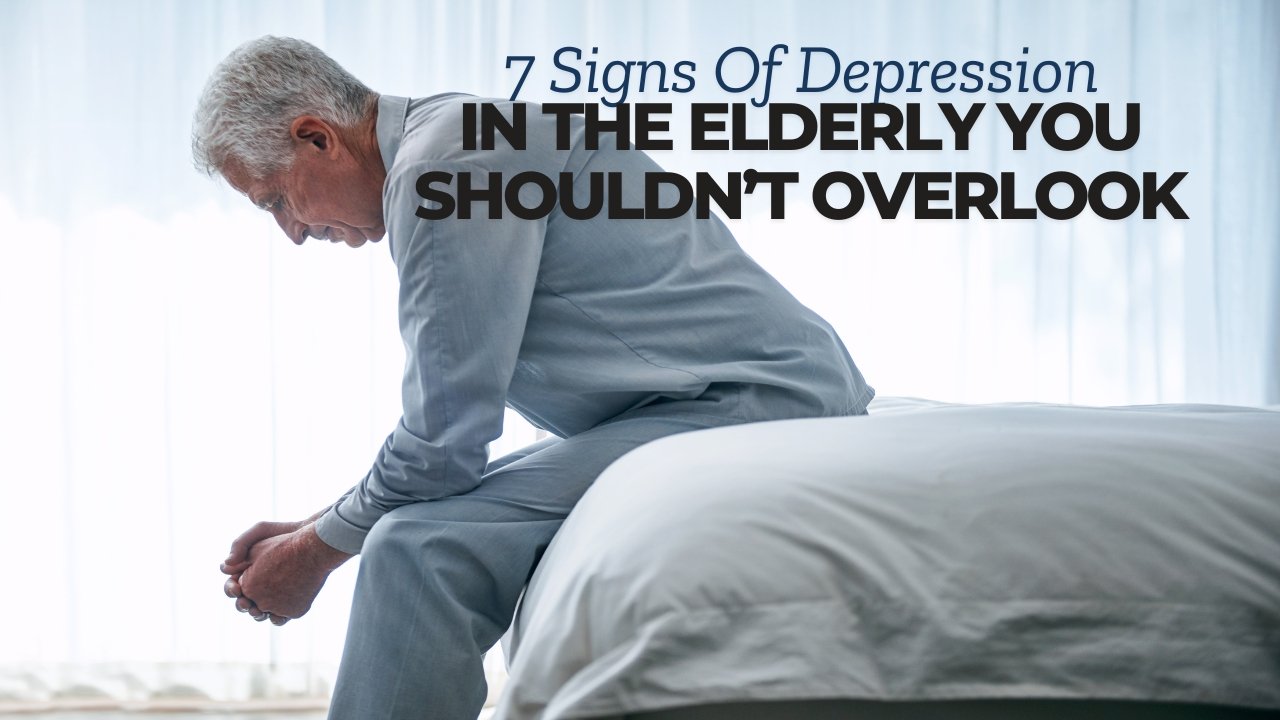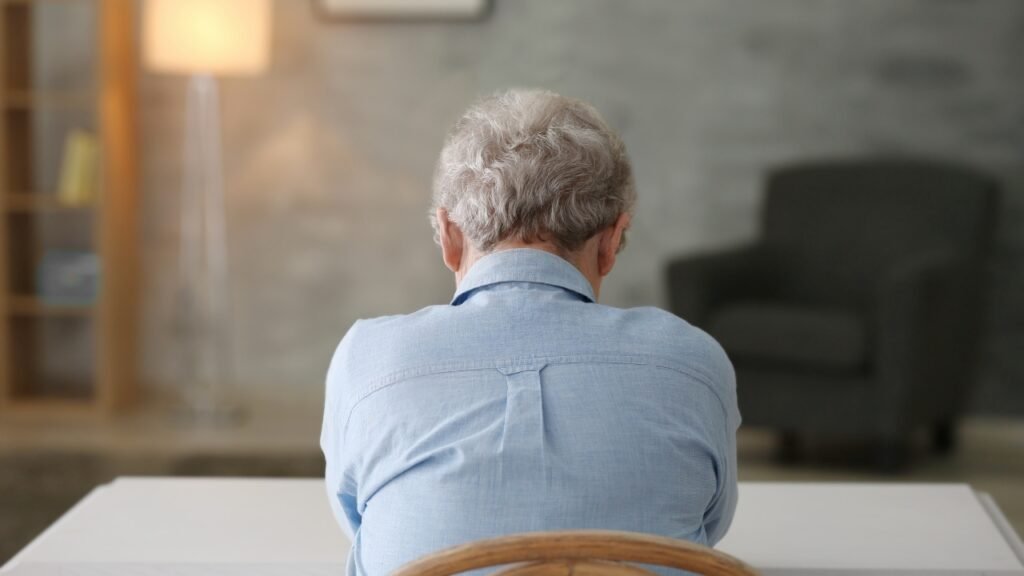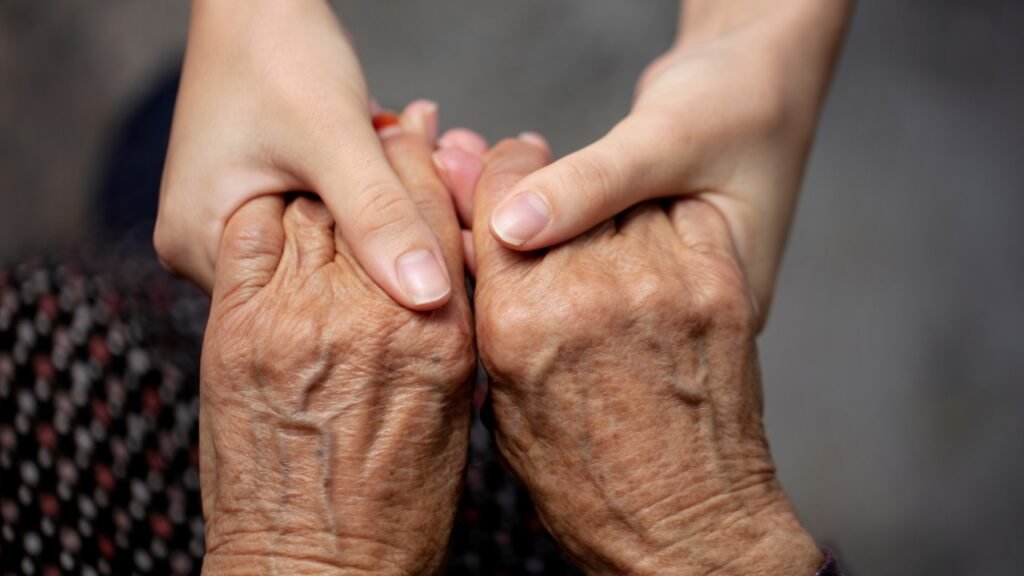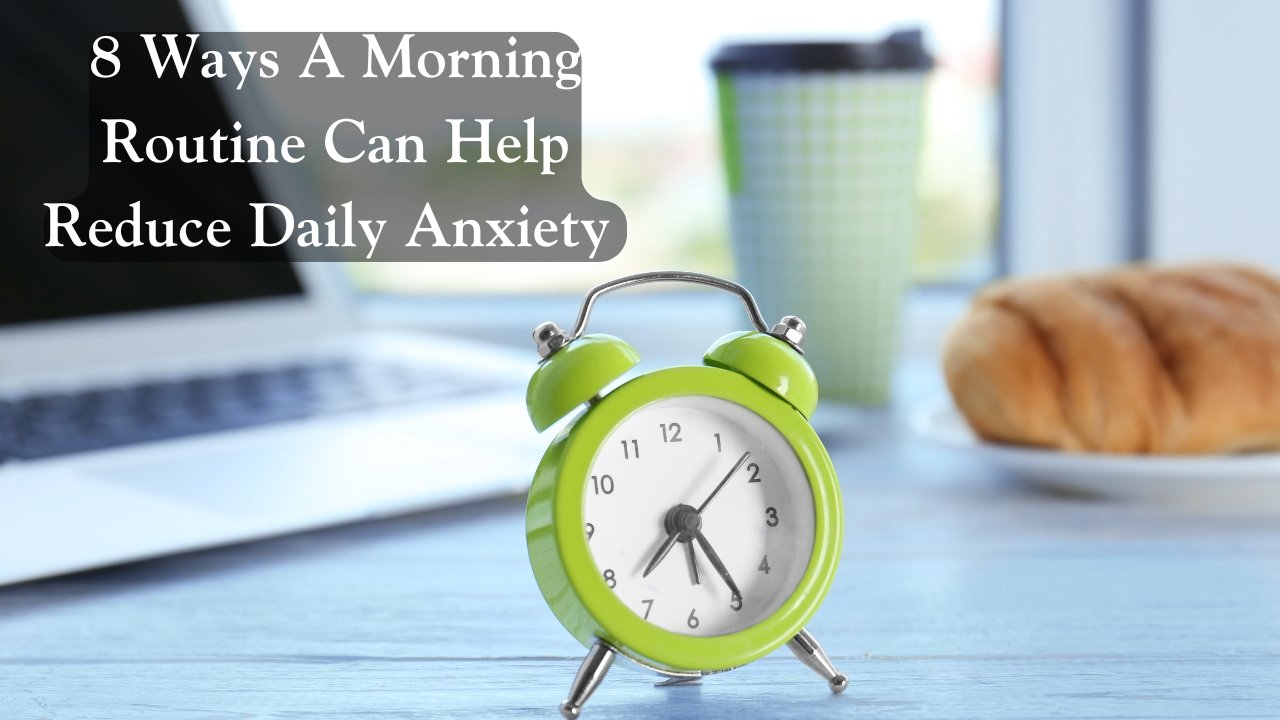

7 Signs Of Depression In The Elderly You Shouldn’t Overlook
- No Comments
As we get older, our mental health can become more fragile. Sadly, depression often goes unnoticed in the elderly. Recognizing the signs can greatly improve their well-being.
Here are seven signs of depression in the elderly that you shouldn’t overlook.
1. Persistent Sadness
If an elderly loved one seems constantly sad, it’s a sign to pay attention. This sadness may not just be occasional but may linger for weeks or even months. Unlike the typical feelings of grief that come and go, persistent sadness can indicate a deeper issue.
2. Changes in Appetite or Weight
Significant changes in appetite or weight can be a clear indicator of depression. Some seniors might overeat due to emotional discomfort, while others might lose interest in food altogether. Keep an eye on any drastic changes in their eating habits.
3. Withdrawal from Social Activities
Social engagement is vital for seniors’ mental health. If your loved one is pulling away from family gatherings, hobbies, or other social interactions, it might be a signal of depression. Isolation can further worsen their mental state, leading to a harmful cycle.
4. Sleep Disturbances
Depression can significantly affect sleep patterns. Your loved one might struggle with insomnia or, conversely, sleep excessively. Both scenarios can impact their physical and mental health. If they consistently express tiredness or trouble sleeping, it deserves attention.

5. Decreased Energy or Fatigue
A constant sense of fatigue or low energy can be a telltale sign of depression. If your elderly loved one describes feeling drained or unable to complete daily tasks, it’s not merely aging. Instead, it might indicate a mental health struggle that needs addressing.
Dr. Jane Simmons, Geriatric Psychiatrist
“Depression in older adults is often mistaken for normal aging, but it’s not a natural part of growing older. Recognizing the signs early can lead to effective treatment and significantly improve their quality of life.”
6. Feelings of Worthlessness or Guilt
Many seniors battling depression may express feelings of worthlessness or excessive guilt over past decisions. These emotions can be damaging, preventing them from seeking help. Listen carefully to their self-talk; it may reveal underlying issues that require intervention.
7. Increased Irritability or Anger
Irritability or sudden outbursts of anger can be surprising signs of depression. When individuals feel overwhelmed by their emotions, they may lash out, even in mild situations. If you notice a change in temperament, it’s important to address it and investigate further.
| Sign | Description |
|---|---|
| Persistent Sadness | Lasting feelings of sadness that don’t improve |
| Changes in Appetite | Significant weight loss or gain beyond normal variation |
| Withdrawal from Social Activities | Loss of interest in gatherings or hobbies previously enjoyed |
| Sleep Disturbances | Insomnia or excessive sleeping |
| Decreased Energy | Constant fatigue or weakness |
| Feelings of Worthlessness | Expressions of guilt and self-criticism |
| Increased Irritability | Frequent mood swings or anger outbursts |
Being observant and proactive is vital in dealing with depression in the elderly.
If you recognize these signs in a loved one, encourage them to seek professional help. Support their journey toward recovery while showing understanding and empathy during this challenging time.
By paying attention to these signs of depression, you can make a world of difference.
The elderly deserve to lead joyful lives, and spotting these warning signs early can pave the way for the support and healing they need.

The Impact of Loneliness on Mental Health in Older Adults
Loneliness is a silent epidemic affecting many older adults. As we age, social networks may diminish due to retirement, loss of loved ones, or health issues.
This can lead to feelings of isolation, which can profoundly impact mental health.
Research consistently shows that loneliness can contribute to various mental health issues, including depression and anxiety.
In older adults, these issues are often magnified, resulting in a complex interplay between loneliness and mental health. Here are some critical aspects to consider:
Understanding Loneliness
Loneliness is more than just being alone. It’s feeling disconnected from others. Even with family around, some elders might feel isolated. This can lead to mental health problems.
- Emotional Loneliness: This type occurs when individuals lack close emotional relationships.
- Social Loneliness: This arises from not having a wider social network or community connections.
The Link Between Loneliness and Depression
Loneliness and depression are closely linked in older adults. Feeling lonely can start or make depression worse. This creates a cycle that’s hard to break.
When people feel isolated, they might pull back even more. This makes their loneliness and despair worse.
Key Signs of Depression Linked to Loneliness
Spotting depression in older adults is key to helping them. Here are some signs:
- Persistent Sadness: A noticeable and ongoing sense of sadness or emptiness.
- Loss of Interest: A withdrawal from hobbies or activities that once brought joy.
- Changes in Sleep Patterns: Insomnia or excessive sleeping can signify depression.
- Appetite Changes: Significant weight loss or gain due to changing eating habits.
- Fatigue: An ongoing feeling of tiredness that doesn’t improve with rest.
- Feelings of Worthlessness: Expressing negative thoughts about oneself or life.
- Difficulty Concentrating: Trouble focusing on tasks or making decisions.
The Impact on Physical Health
Loneliness affects more than just mental health. It can harm physical health too. Older adults feeling lonely might see their stress levels rise. This can lead to:
- Elevated blood pressure
- Heart disease
- Reduced immune function
This shows why it’s important to tackle loneliness early on.

Coping Strategies for Loneliness
Older adults need ways to fight loneliness. Here are some helpful tips:
- Join Community Groups: Engaging in community activities provides a sense of belonging.
- Volunteer: Helping others can create strong connections and improve mental health.
- Maintain Family Connections: Regular communication with family and friends can alleviate feelings of isolation.
- Seek Professional Help: Therapy or counseling can provide valuable support.
Resources for Support
There are many resources for older adults feeling lonely:
| Resource | Description |
|---|---|
| Local Senior Centers | Offer programs and events to engage seniors socially. |
| Crisis Hotline | A confidential line for immediate mental health support. |
| Online Support Groups | Virtual forums where seniors can connect with peers. |
As a caregiver or family member, you’re key in supporting older adults. By being proactive and aware of loneliness signs, we can improve their lives.
Dr. Michael Carter, Clinical Psychologist
“Loneliness is one of the biggest risk factors for depression in the elderly. Social connections, no matter how small, play a crucial role in maintaining mental well-being.”
How to Approach Conversations About Mental Health with Seniors
Talking about mental health with seniors can be tough. Many older adults have faced stigma around mental health issues.
It’s important to be compassionate and understanding. Here are some ways to start these conversations.
Understand the Importance of Mental Health
It’s vital to see why mental health talks are important. Mental health greatly affects seniors’ well-being. Ignoring issues like depression and anxiety can worsen health problems.
Open discussions can help seniors feel supported and encouraged to seek help.
Choose the Right Environment
The right setting is key for seniors to feel at ease talking about sensitive topics. Think about these points when picking a place:
- Quiet Space: Pick a calm spot to avoid distractions.
- Private Setting: Make sure they can talk without being interrupted.
- Familiar Surroundings: A safe place can help them open up more.
Start the Conversation Gently
Starting a talk about mental health can be tough. Begin by showing you care about their well-being. You might say:
- “I’ve noticed you’ve seemed a bit down. How have you been feeling?”
- “It’s okay to talk about tough times. It can help.”
Starting like this shows you care without being pushy.
Listen Actively
Listening well is key in these talks. Here’s how to show you’re really listening:
- Maintain Eye Contact: It shows you’re focused on them.
- Nod and Affirm: Small cues like “I see” help them feel heard.
- Reflect Back: Repeat what they say to show you get it.
Listening without judging makes them feel safe and understood.
Encourage Openness
It’s important to encourage seniors to share their thoughts. Tell them it’s okay to express themselves without fear. Phrases like these can help:
- “It’s okay to feel sad sometimes. You’re not alone.”
- “Talking about feelings is a big step towards feeling better.”
Normalize Mental Health Discussions
Make talking about mental health normal. Share stories or facts that show it’s common. For example:
| Statistic | Meaning |
|---|---|
| 1 in 5 seniors experience depression | Shows how common it is among older adults |
| Only 50% of those seek help | Highlights the need for better understanding and support |
Be Patient and Respect Boundaries
Not every senior will want to talk about mental health right away. Be patient and respect their pace. If they do want to talk, be supportive. If not, don’t push. You want to make them feel comfortable for future talks.
Dr. Susan Patel, Neurologist & Aging Specialist
“Depression in seniors can manifest in physical symptoms like fatigue, sleep disturbances, and chronic pain. Treating both mental and physical health together is key to holistic well-being.”
Know When to Seek Help
If you see big changes in their mood or behavior, they might need professional help. You can suggest this by saying:
- “It might be helpful to talk to someone who can provide support and guidance.”
- “Many people benefit from therapy; it could be a good step for you.”
Approaching mental health talks with care can greatly help seniors. It can make them feel seen, heard, and empowered to address their mental health safely.

Effective Strategies to Support an Elderly Loved One Experiencing Depression
Supporting an elderly loved one with depression can be tough, but your help can make a big difference. Recognizing signs is the first step.
They might not always show their feelings. Here are some ways to support them during this tough time.
Understand the Symptoms
To help, you need to know the signs of depression in the elderly. Common signs include:
- Persistent sadness or low mood
- Loss of interest in activities they once enjoyed
- Changes in appetite or weight
- Sleeping too much or too little
- Feelings of hopelessness or worthlessness
- Increased fatigue or lack of energy
- Difficulty concentrating or making decisions
Knowing these signs helps you approach them with empathy and love.
Encourage Open Communication
Creating a safe space for your loved one to share their feelings is vital. You can:
- Ask open-ended questions that invite discussion.
- Listen actively and validate their feelings without judgment.
- Encourage them to share their thoughts daily, even if they seem trivial.
This fosters trust and shows that you genuinely care about their wellbeing.
Offer Emotional Support
Providing emotional comfort can lessen feelings of isolation. Here are some ways to do this:
- Spend quality time together, engaging in activities that they enjoy.
- Remind them of good memories to uplift their spirits.
- Be patient; understanding that their mood may fluctuate can help you respond compassionately.
Promote Healthy Lifestyle Choices
Encouraging an active and healthy lifestyle can provide immense benefits. You can:
- Suggest gentle exercises suited to their physical abilities, like walking or chair exercises.
- Help them prepare nutritious meals, focusing on a well-balanced diet.
- Encourage proper hydration and sufficient sleep patterns.
These lifestyle changes can positively impact their mood and health.
Seek Professional Help
Sometimes, the best support can come from mental health professionals. Encourage your loved one to:
- Consult their primary care physician to discuss symptoms.
- Consider therapy with a psychologist or counselor.
- Discuss medication options with a psychiatrist if necessary.
Inform them that seeking help is a sign of strength, not weakness.
Create a Routine
A regular daily routine can offer stability. To implement this:
- Help them set a predictable schedule for meals, activities, and rest.
- Encourage participation in social or community activities, if possible.
- Make adaptations as necessary to ensure the routine is flexible and manageable.
This structure can provide a sense of purpose and control amidst overwhelming feelings.
Stay Connected
Regular contact, even from afar, helps reduce feelings of loneliness. Consider these ideas:
- Make phone calls or video chats to check in.
- Send letters or small care packages with thoughtful surprises.
- Organize family gatherings or activities to foster social interactions.
Remaining connected can reassure your loved one that they are never alone.

Encourage Engagement with Support Groups
Support groups can offer comfort, companionship, and understanding. Look for:
- Local community centers providing depression support groups.
- Online forums where they can share experiences anonymously.
- Activities for seniors, like classes or clubs that align with their interests.
Connecting with others facing similar challenges can help reduce feelings of isolation.
Supporting an elderly loved one experiencing depression is vital. Your understanding, patience, and encouragement can significantly impact their emotional and mental health.
Always remember that you are not alone in this journey; seek support for yourself as well.
By working together, you can navigate these tough times towards better mental wellness.
Exploring Treatment Options for Depression in Older Adults
Depression can affect anyone, but in older adults, it often goes unnoticed. Understanding the treatment options available is essential to help manage and alleviate symptoms.
Let’s explore various methods that can effectively treat depression in older adults.
The Importance of Early Intervention
Recognizing depression early is critical. Early intervention can lead to better outcomes and enhance the quality of life. When you notice signs like persistent sadness, withdrawal from activities, or changes in sleep patterns, it’s time to consult a healthcare professional.
Dr. Robert Ellis, Mental Health Advocate for Seniors
“Compassionate conversations about mental health can make all the difference. When seniors feel heard and supported, they are more likely to seek help and embrace healing.”
Therapeutic Approaches
Different therapeutic options can provide relief from depression. Here are some common methods:
- Cognitive Behavioral Therapy (CBT): This therapy helps older adults identify and change negative thought patterns. Research shows that CBT can significantly reduce symptoms of depression.
- Interpersonal Therapy (IPT): This focuses on improving interpersonal relationships and communication skills, which can often alleviate feelings of isolation.
- Mindfulness-Based Therapy: Mindfulness teaches individuals to stay present and develop non-judgmental awareness of thoughts and feelings, helping them cope with depression.
Medication Options
Medications can help treat depression. A healthcare provider must prescribe them, knowing what’s best for older adults. Common types include:
- Selective Serotonin Reuptake Inhibitors (SSRIs): Often the first choice because they have fewer side effects.
- Serotonin Norepinephrine Reuptake Inhibitors (SNRIs): Good for those who don’t respond to SSRIs.
- Tricyclic Antidepressants: Effective but less preferred in seniors due to more side effects.
Supportive Care
Supportive care is key beyond therapy and meds. Family, friends, and caregivers are vital. Here’s how to support them:
- Encourage Social Interaction: Help them join social activities to fight loneliness.
- Promote Physical Activity: Exercise boosts mood and health.
- Ensure Proper Nutrition: A balanced diet improves mental health. Include foods that are good for the brain.
Alternative Treatments
Some prefer alternative treatments with traditional ones. Options include:
- Acupuncture: Helps some with depression symptoms.
- Aromatherapy: Certain oils can lift mood and relax.
- Herbal Supplements: Like St. John’s Wort, but talk to a doctor first.
Monitoring and Follow-Up
Regular check-ups are key once treatment starts. They help see if it’s working and if changes are needed. It’s important to stick to the treatment plan and feel supported.
Creating a Safety Plan
If depression gets worse, a safety plan is vital. It might include:
- Emergency contact numbers.
- A list of trusted people to call for help.
- Info on local mental health resources or hotlines.
Helping older adults with depression needs a careful approach. Look into therapy, meds, and supportive care. You’re not alone; there are many resources and professionals ready to assist.
Conclusion : Recognizing the 7 Signs of Depression in the Elderly
It’s important to know the signs of depression in older adults to help them early. Recognizing the seven key indicators can help you support your loved ones.
Loneliness can make sadness worse, so it’s key to keep them connected.
Talking about mental health can be tough, but being open can help a lot. Your empathy and listening can help seniors feel safe sharing their feelings.
If you notice signs of depression, there are many ways to help, like doing things together or getting professional help.
Finding the right treatment for depression in older adults is essential. There are many options, from therapy to medication.
Understanding these can guide you and your loved one towards better health.
Being involved in your elderly loved one’s mental health journey is important. It not only helps them but also strengthens your bond.
By prioritizing their mental health, you can improve their quality of life and help them enjoy their golden years.




Leave A Comment